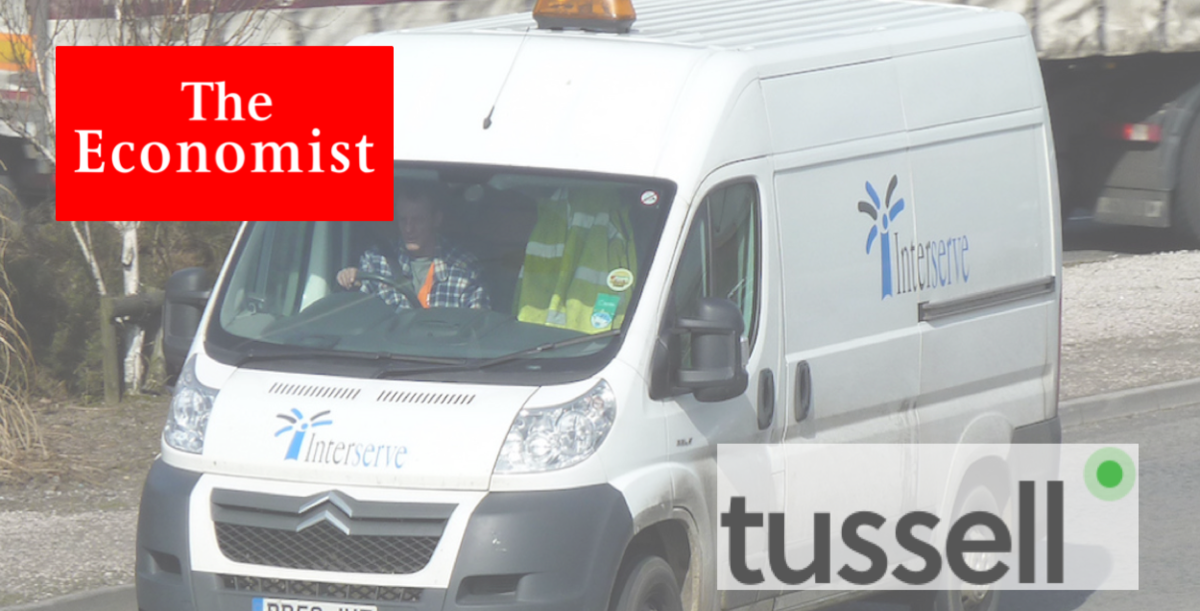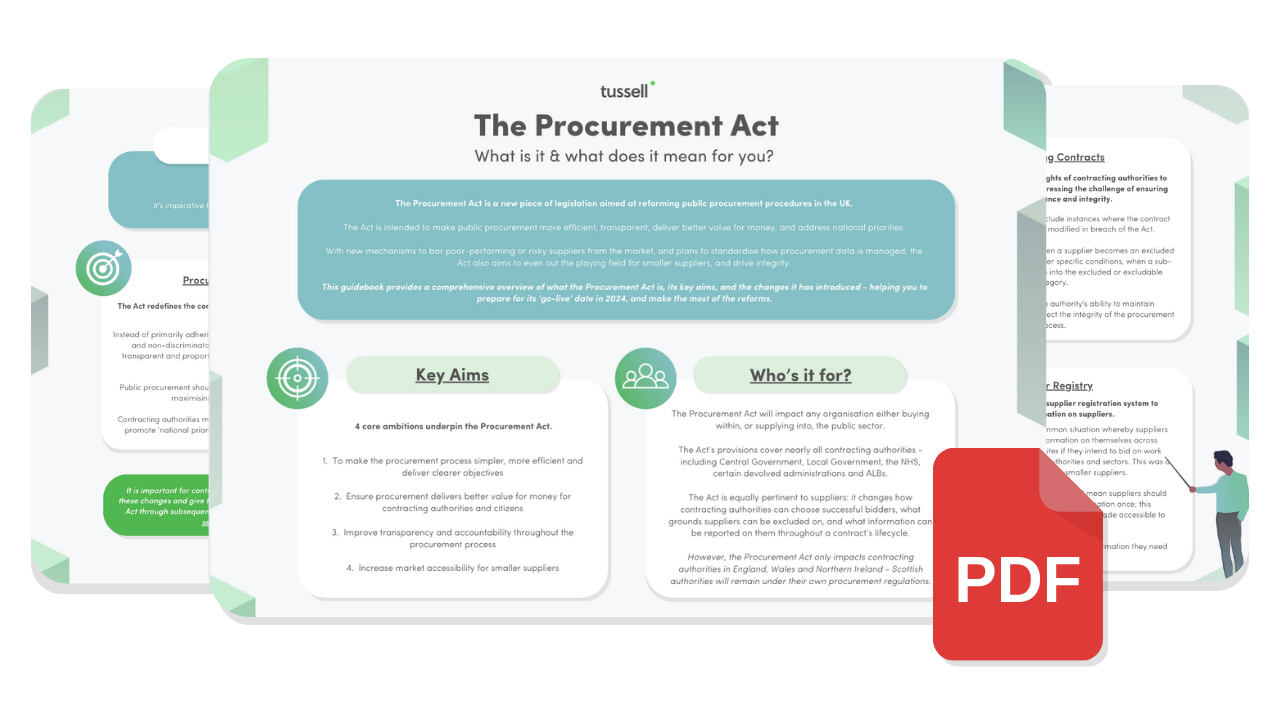Tussell's cautionary report on Interserve published in November proved to be well timed, with Interserve's share price falling a further 60% in the following month. This week, The Economist has picked up on Tussell's analysis.
Extracts from "Interserve goes into intensive care", in The Economist...
Rarely can a stock price have collapsed so spectacularly. Just an hour or so after Interserve confirmed on December 10th that it was in talks with its lenders about a rescue plan, the company’s shares had dived by 75%. At one pointed they touched a measly 6p (8 cents), giving one of Britain’s biggest outsourcing companies a value of just under £10m. As Interserve has debts of over £500m, it is easy to see why investors are spooked. The company says it will announce its restructuring plans in early 2019, but some doubt that it can stagger on to see in the new year.
The fear now is of another Carillion-style disaster. The consequences could be terrible. According to Tussell, a consultancy that scrutinises public procurement, Interserve has 51 government contracts, worth £2.1bn. The biggest is with the Ministry of Justice; Interserve is the largest provider of probation and rehabilitation services in England and Wales, in charge of 40,000 offenders. The company also has contracts with London’s fire brigade and police force.
Whereas Carillion continued to be given large contracts even as it wobbled, the government seems to have been reducing its exposure to Interserve. According to Tussell, in the 12 months to September Interserve won £250m less in new public-sector contracts than in the previous year, unlike other outsourcers like Capita and G4S, which increased their business.
Read the full Economist article here, or download Tussell’s full analysis on Interserve - or start your free trial of our online discovery platform of government contracts.










